MOP 30 Summary Highlights
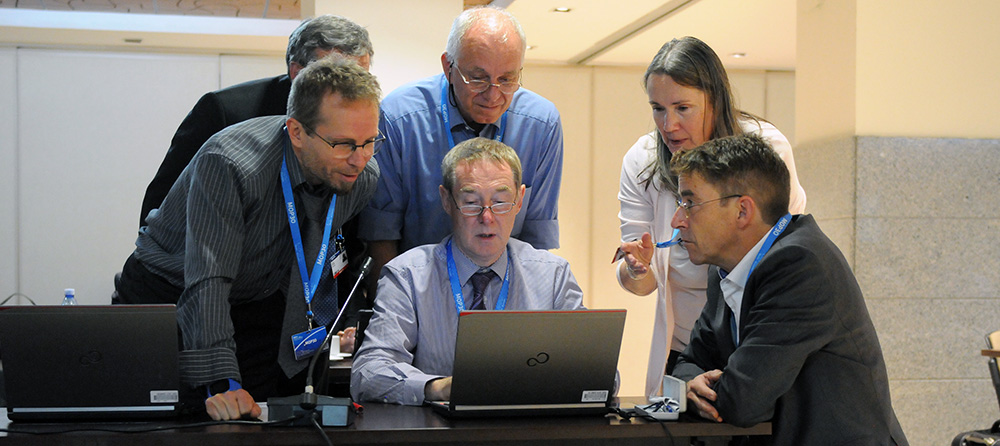
Delegates from the European Union (EU) in discussions at the contact group on Adjustments
The thirtieth Meeting of the Parties to the Montreal Protocol (MOP 30) convened for its final day on Friday, 9 November 2018, in Quito, Ecuador. The Budget Committee, contact groups and informal discussions met throughout the day. The High-Level Segment (HLS) convened in the morning to hear statements from heads of delegation, then adjourned for a brief resumption of the Preparatory Segment to receive updates from contact groups and informal discussions. The afternoon was devoted to contact groups and informal discussions, with the Preparatory Segment tentatively scheduled for a stocktaking session at 8:30 pm.
Updates:
- 7:55 pm: Plenary is rescheduled to 9:00 pm.
- 9:35 pm: Preparatory Segment reconvenes.
- 10:12 pm: High-Level Segment resumes to consider decisions forwarded by the Preparatory Segment.
- MOP closed at 11:10 pm.
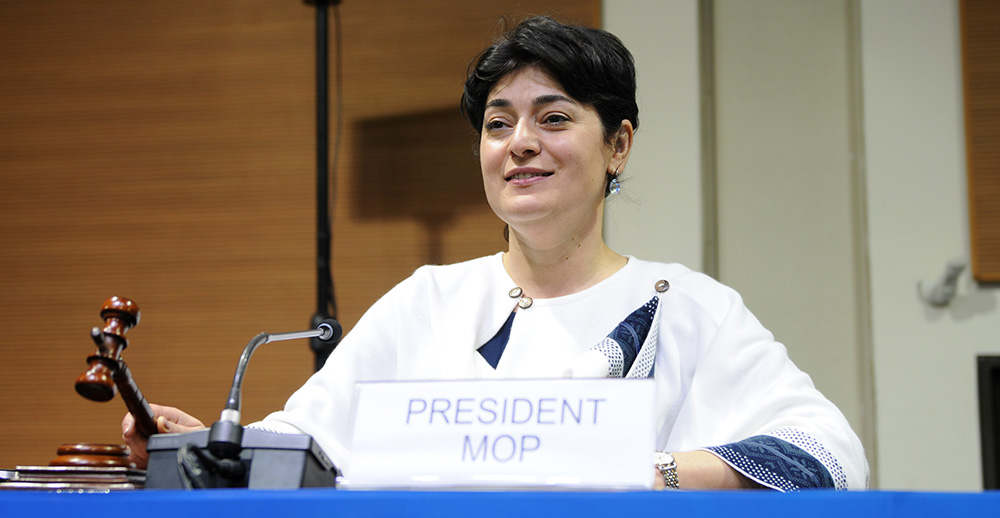
MOP 30 President Liana Ghahramanyan, Armenia, gavels the meeting to a close at 11:10 pm.
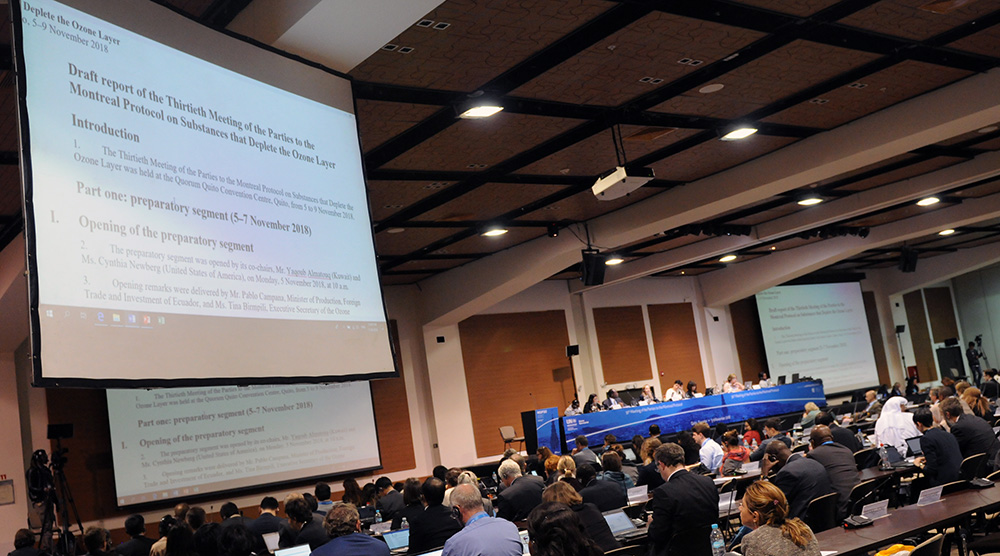
Delegates during the adoption of the meeting report
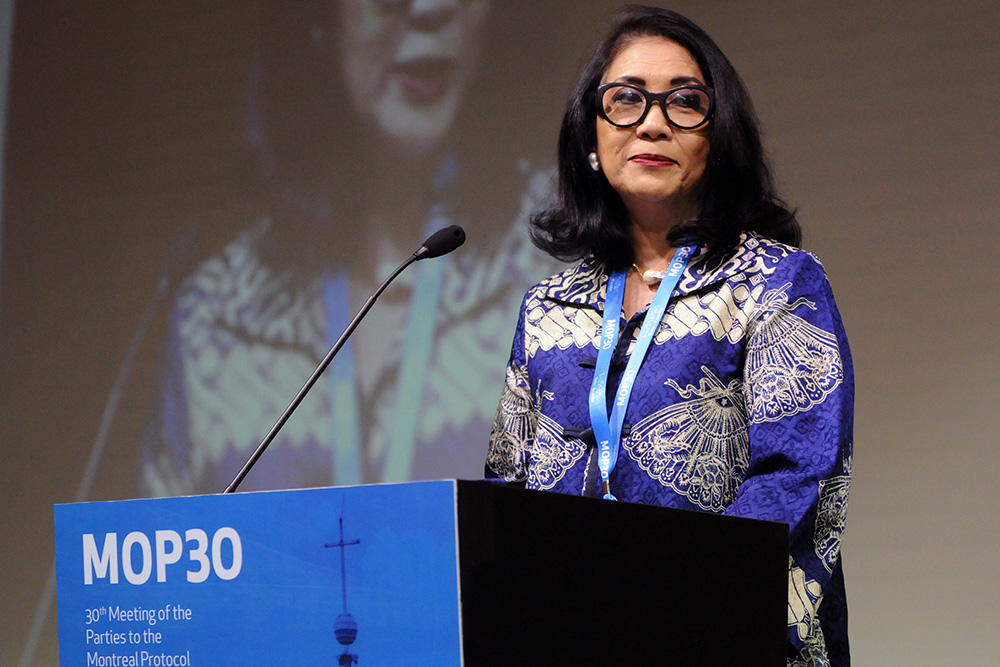
Amb. Diennaryati Tjokrosuprihatono, Indonesia
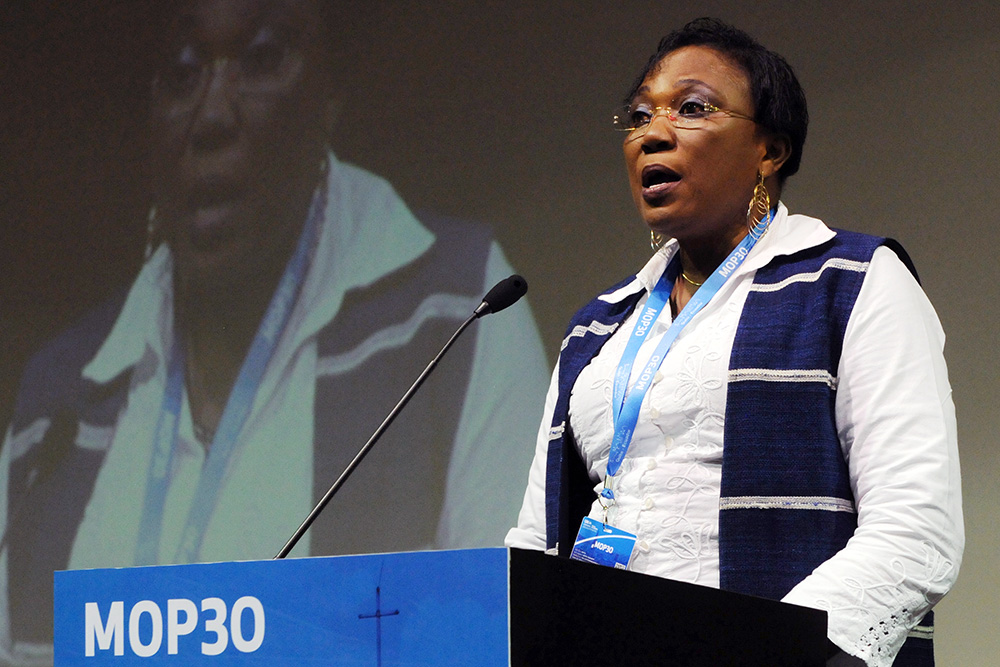
Jeanne Josette Acacha Akoha, Ministry of Life Framework and Sustainable Development, Benin
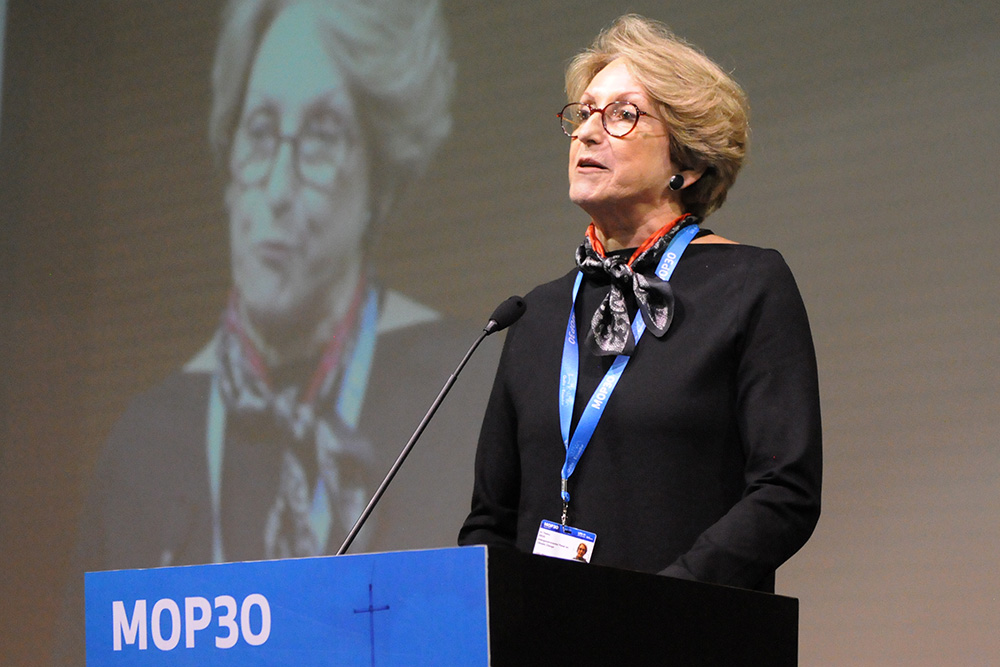
Thelma Krug, Intergovernmental Panel on Climate Change (IPCC)
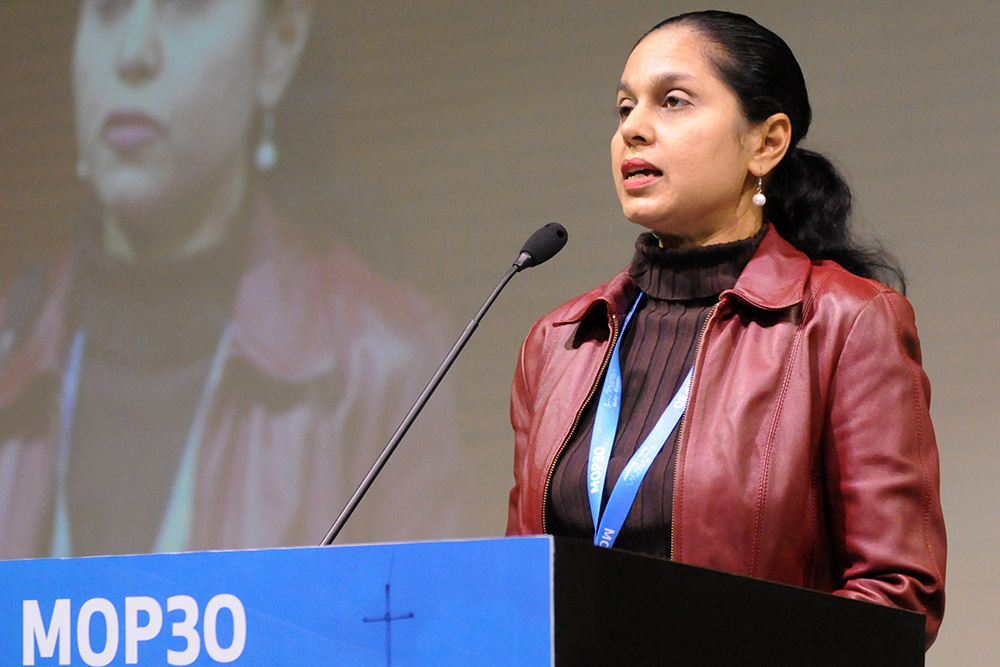
Marissa Gowrie, Ministry of Planning and Development, Trinidad and Tobago
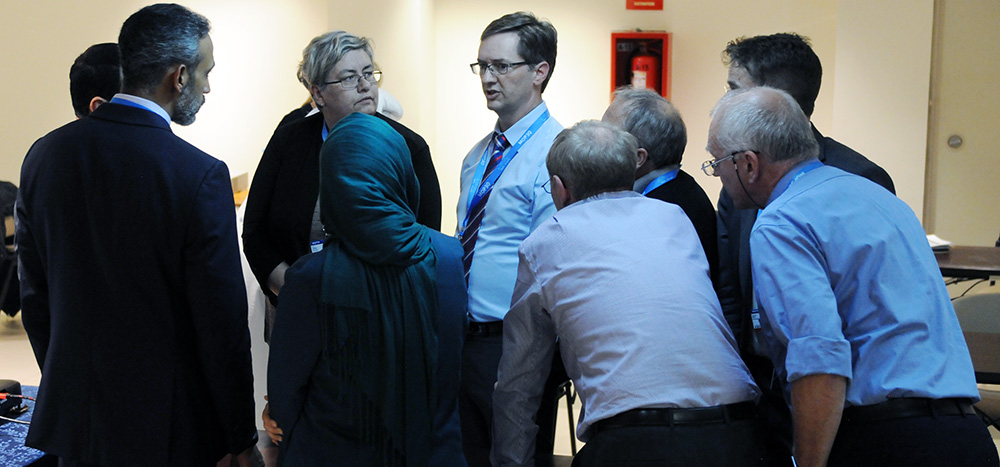
Delegates from the Adjustments contact group in informal consultations
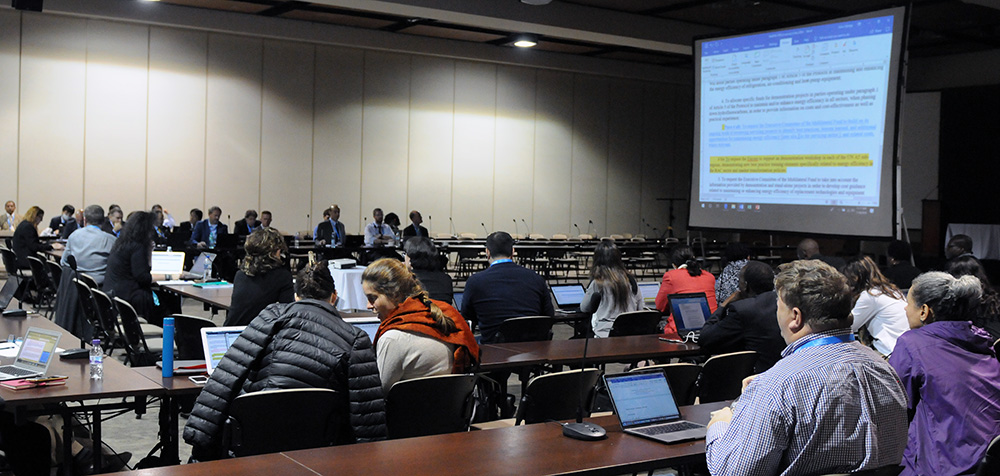
Delegates during the contact group on Energy Efficiency
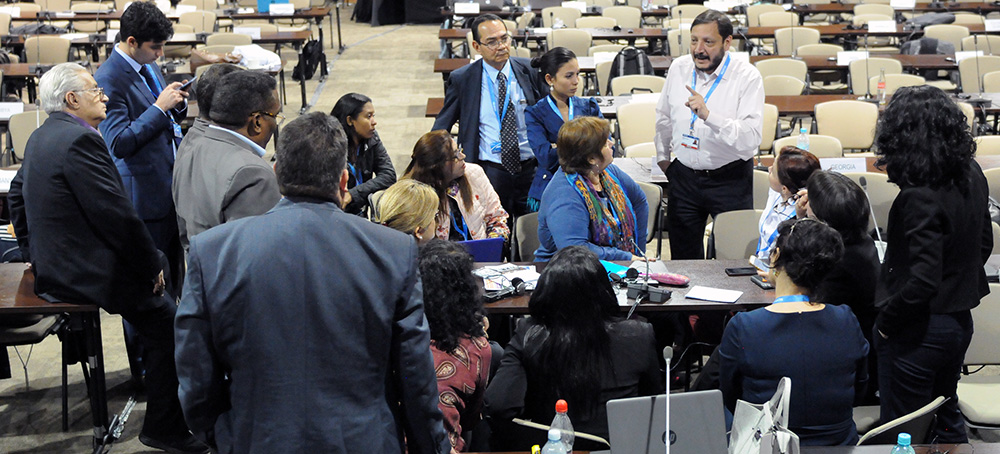
Latin America and Caribbean (GRULAC) delegates in discussions
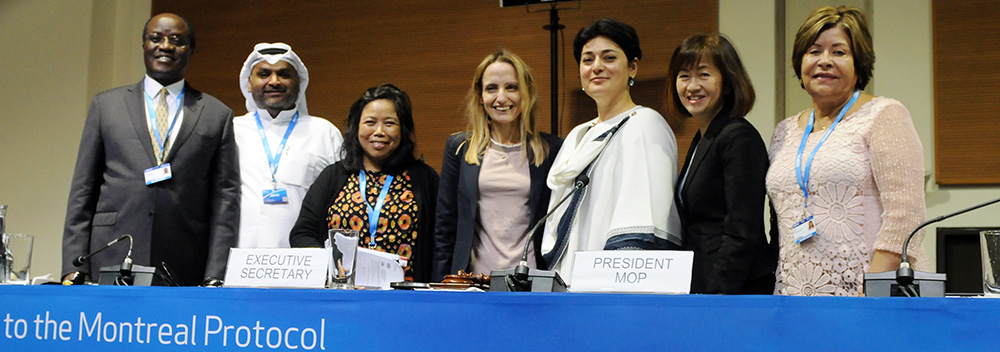
L-R: Gilbert Bankobeza, Ozone Secretariat; Yaqoub Almatouq, Kuwait; MOP 30 Rapporteur Bitul Zulhasni, Indonesia; Tina Birmpili, Executive Secretary, Ozone Secretariat; MOP 30 President Liana Ghahramanyan, Armenia; Megumi Seki, Deputy Executive Secretary, Ozone Secretariat; and Martha Leyva, Ozone Secretariat
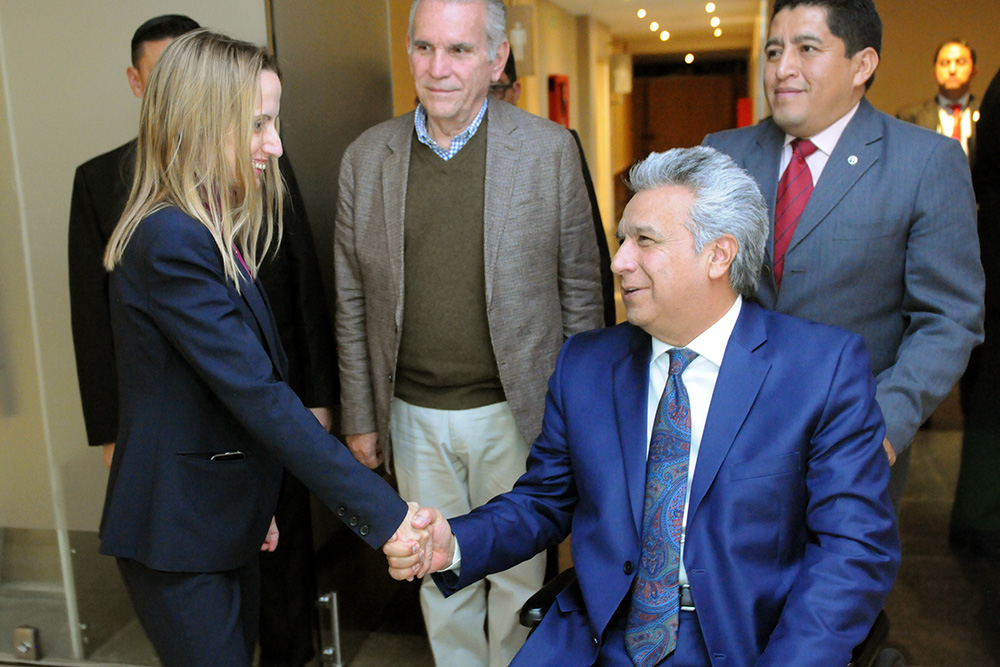
Tina Birmpili, Executive Secretary, Ozone Secretariat, welcomes President Lenín Moreno, Ecuador
The High-Level Segment (HLS) of the Montreal Protocol MOP 30 opened on Thursday, 8 November 2018, in Quito, Ecuador. In the morning, plenary heard statements from dignitaries, addressed organizational matters and heard reports from the assessment panels on key findings emerging from their 2018 Quadrennial Assessments.
The Budget Committee and contact groups met throughout the afternoon. In late afternoon, the HLS heard statements from heads of delegation on national plans to implement the Protocol. The Preparatory Segment reconvened afterward to hear progress reports back from contact groups and informal consultations.
For extensive details on the day’s negotiations and to hear what delegates said in the corridors, see our daily Earth Negotiations Bulletin (ENB).
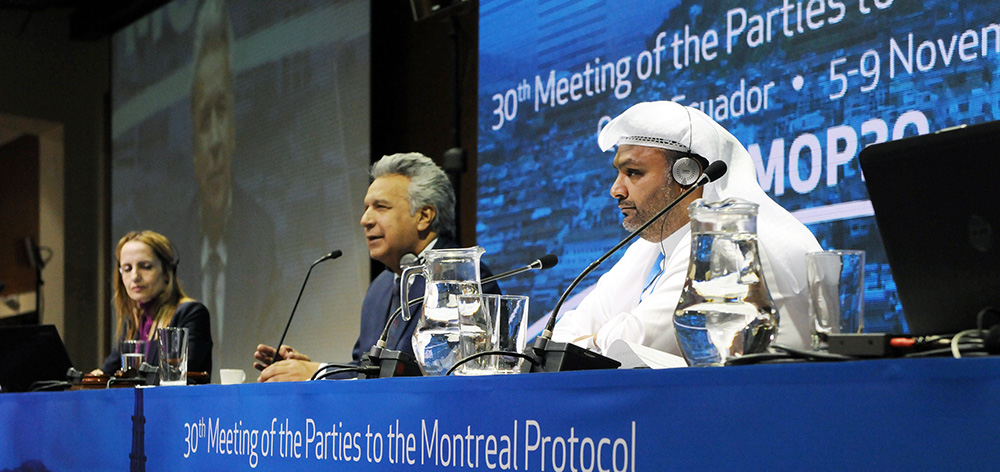
Tina Birmpili, Executive Secretary, Ozone Secretariat; President Lenín Moreno, Ecuador; and OEWG Co-Chair Yaqoub Almatouq, Kuwait
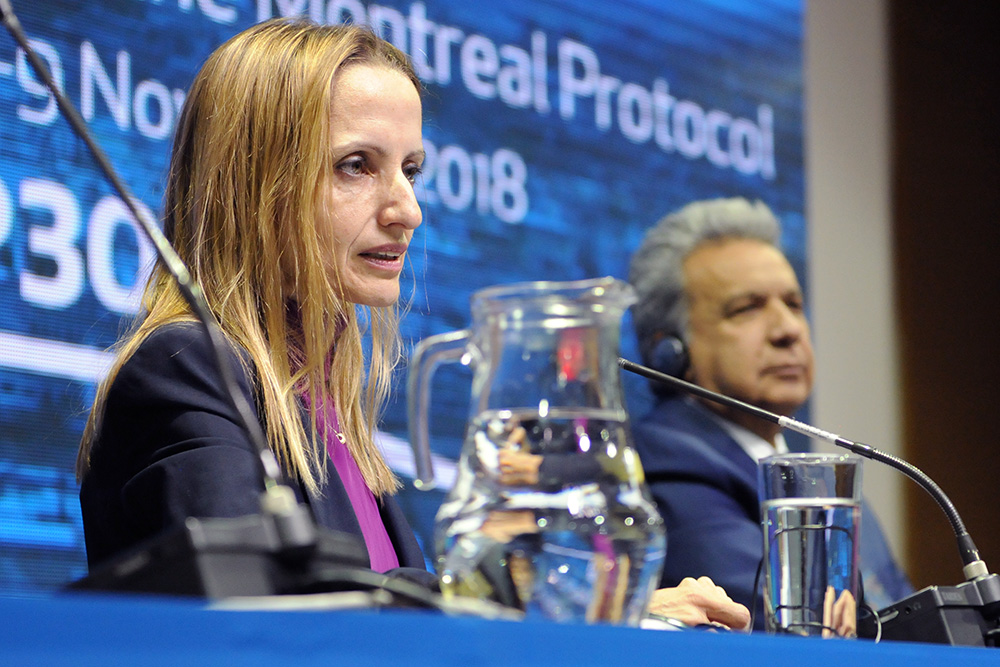
Tina Birmpili, Executive Secretary, Ozone Secretariat
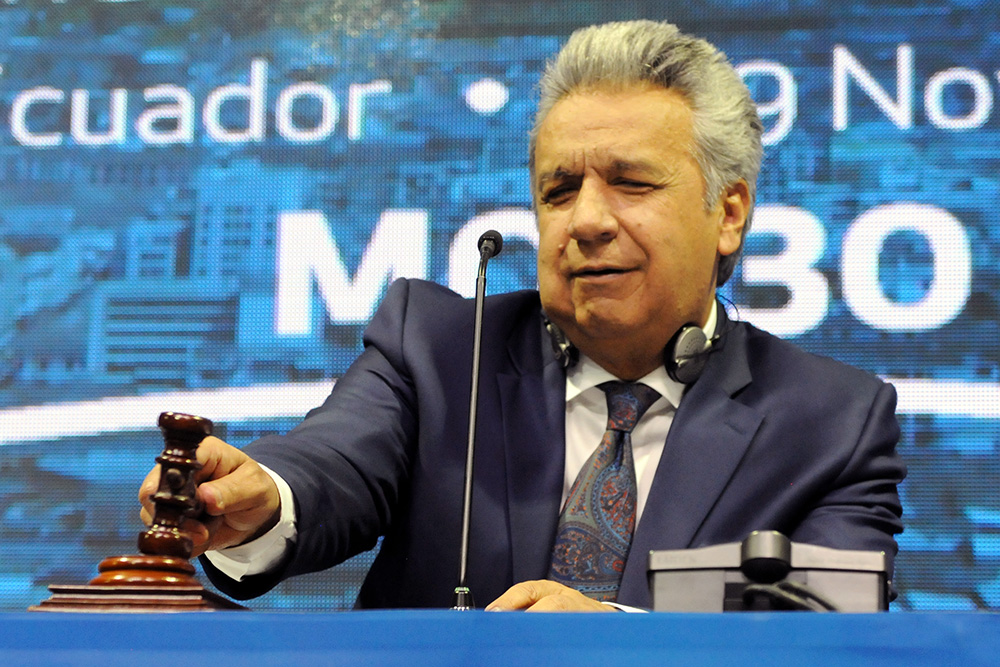
President Lenín Moreno, Ecuador
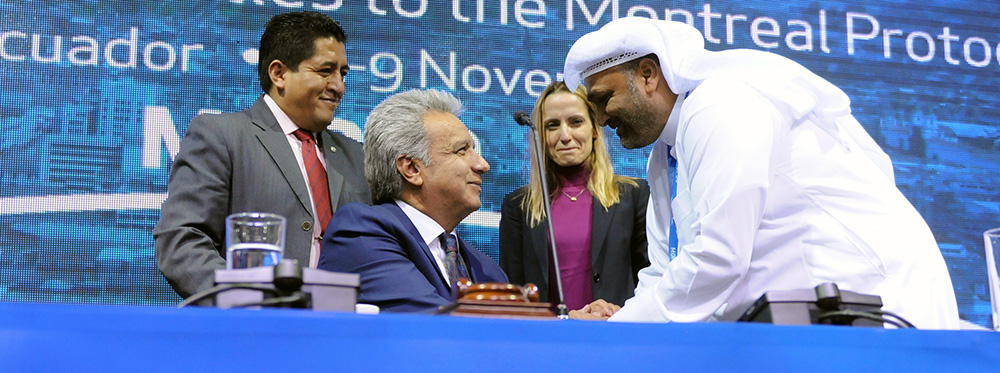
President Lenín Moreno, Ecuador, shakes hands with MOP 29 President Yaqoub Almatouq, Kuwait
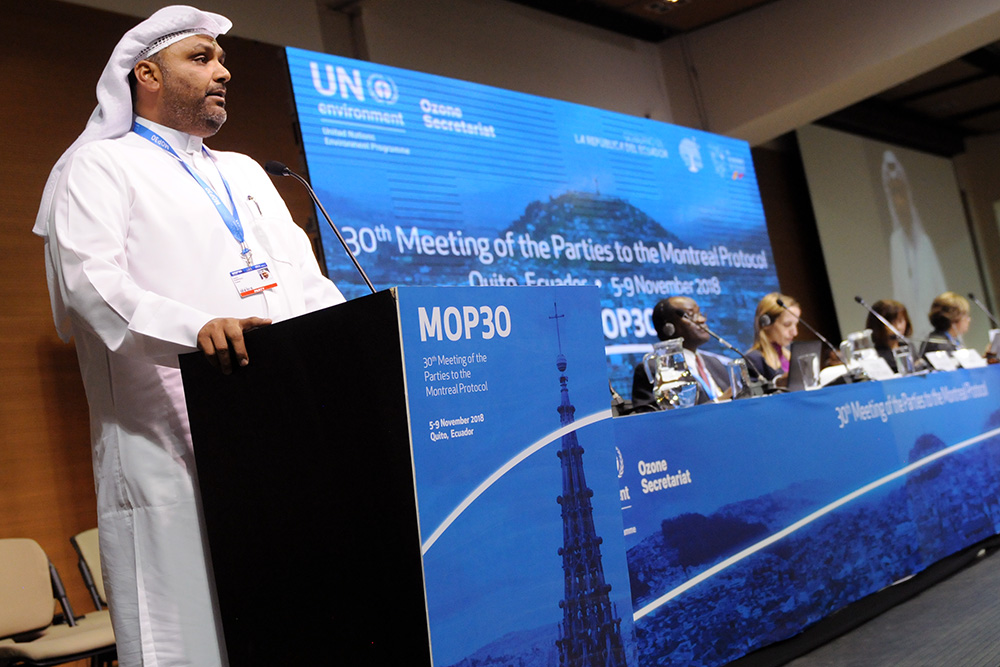
Yaqoub Almatouq, Kuwait, addresses High-Level Segment in his role of MOP 29 President
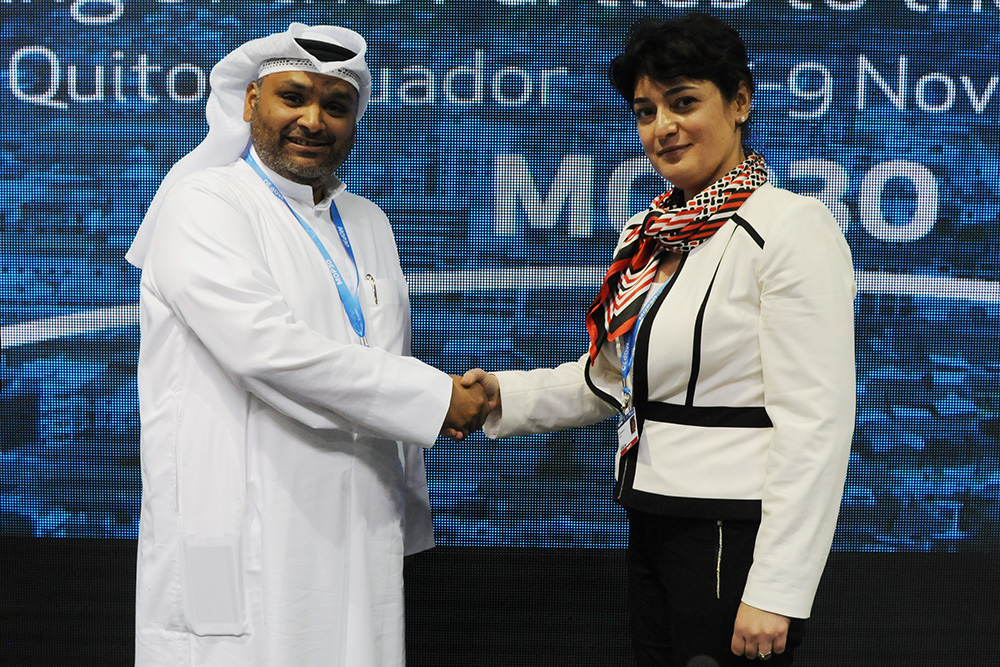
Outgoing MOP 29 President Yaqoub Almatouq, Kuwait, and incoming MOP 30 President Liana Ghahramanyan, Armenia
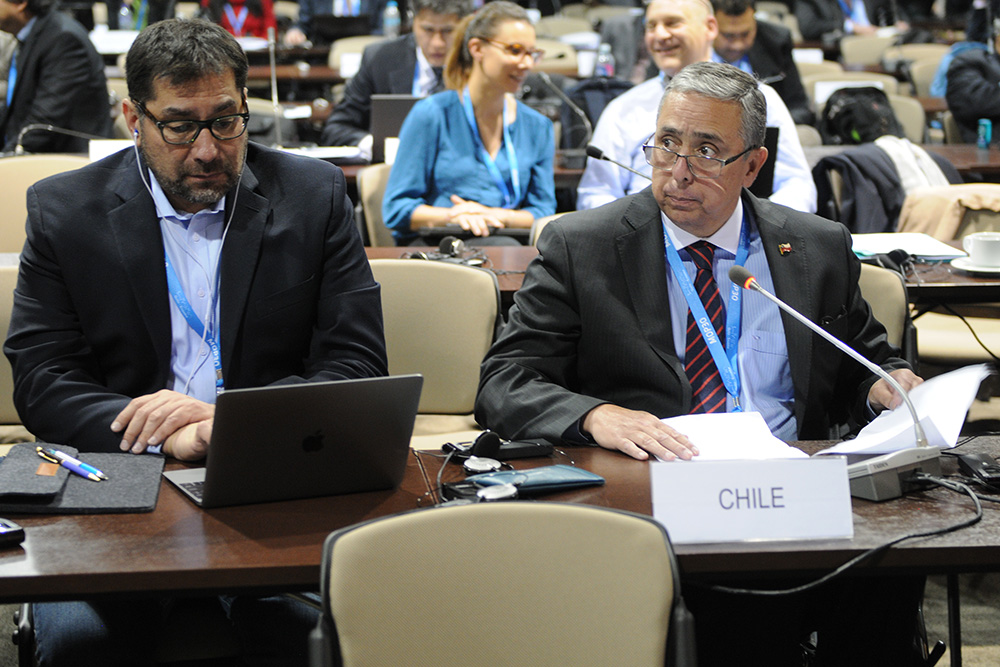
Osvaldo Álvarez and Amb. Eduardo Tapia Riepel, Chile
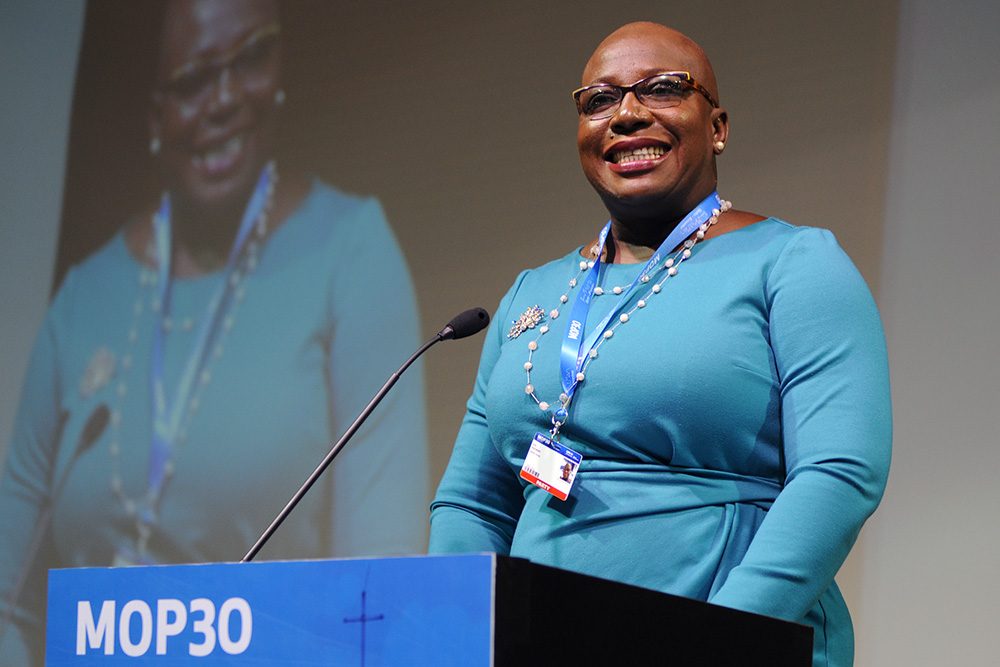
Gale T.C. Rigobert, Minister for Education, Innovation, Gender Relations and Sustainable Development, Saint Lucia
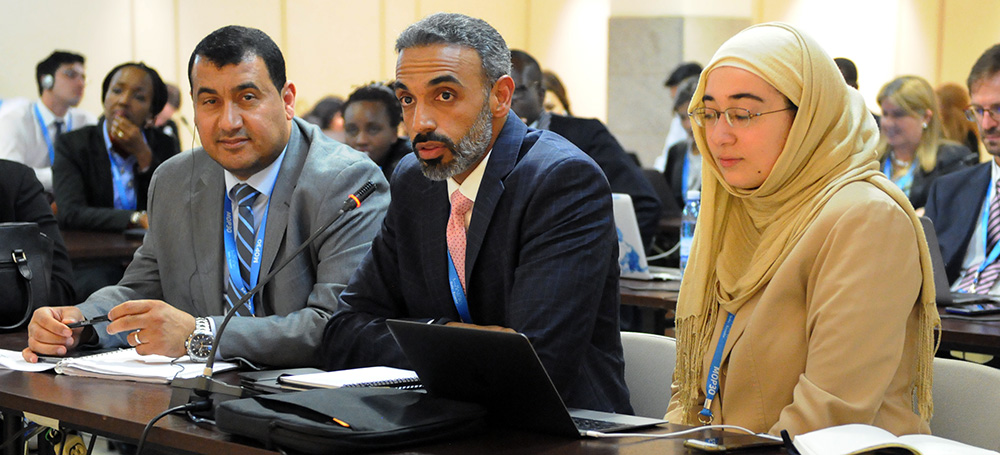
L-R: Hasan Mubarak, Bahrain, and Omar Ghazi Al-Attas and Maryam Al-Dabbagh, Saudi Arabia

Local artwork outside the venue
The preparatory segment of the Montreal Protocol MOP 30 convened for its third day on Wednesday, 7 November 2018, in Quito, Ecuador. In the morning, delegates addressed:
- Review of the terms of reference, composition and balance as well as fields of expertise required of the assessment panels and their subsidiary bodies;
- Consideration of senior expert and other nominations by parties to the Technology and Economic Assessment Panel (TEAP); and
- Consideration of the membership of Montreal Protocol bodies for 2019.
In the afternoon, the Budget Committee and contact groups met. In evening plenary, delegates heard reports back from the contact groups and forwarded a few decisions to the High Level Segment (HLS). They also considered Harmonized System customs codes for hydrochlorofluorocarbons (HCFCs) and clorofluorocarbons (CFCs) substitutes and a draft decision on progress by the Multilateral Fund (MLF) Executive Committee (ExCom) in the development of guidelines for financing the phase-down of hydrofluorocarbons (HFCs).
For extensive details on the day’s negotiations and to hear what delegates said in the corridors, see our daily ENB.

Liana Ghahramanyan, Armenia

John Thompson and Luke H. Hall-Jordan, US

Miruza Mohamed, Maldives, President of the Implementation Committee
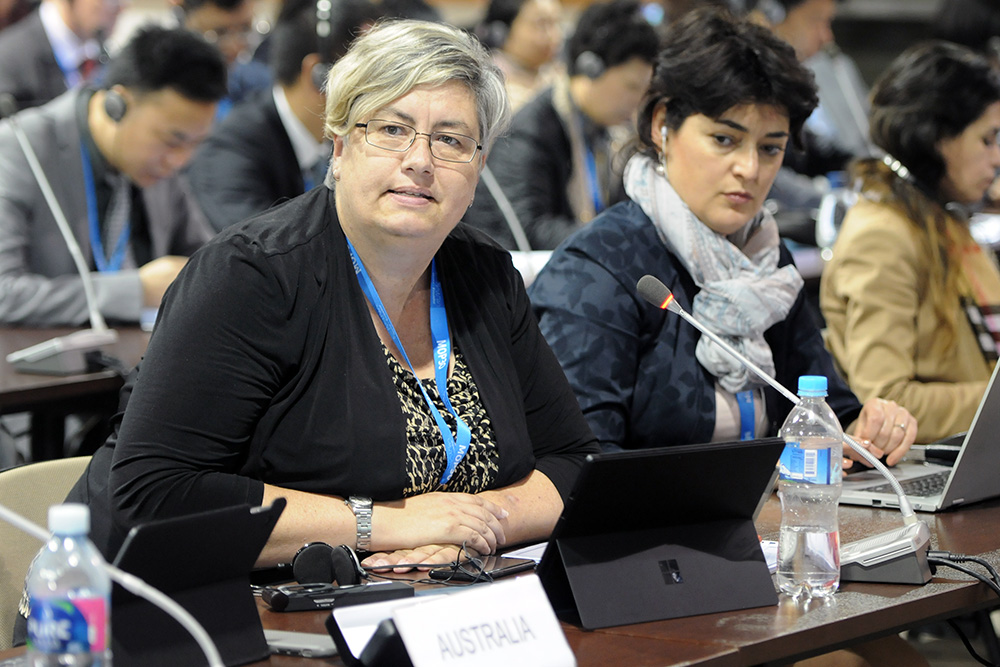
Annie Gabriel, Australia

Delegates from Jordan, L-R: Emad Eddin Fattouh, Zaid Banyhani, and Ghazi Alodat

Osvaldo Álvarez, Chile, in consultations with Lesley Dowling, Australia
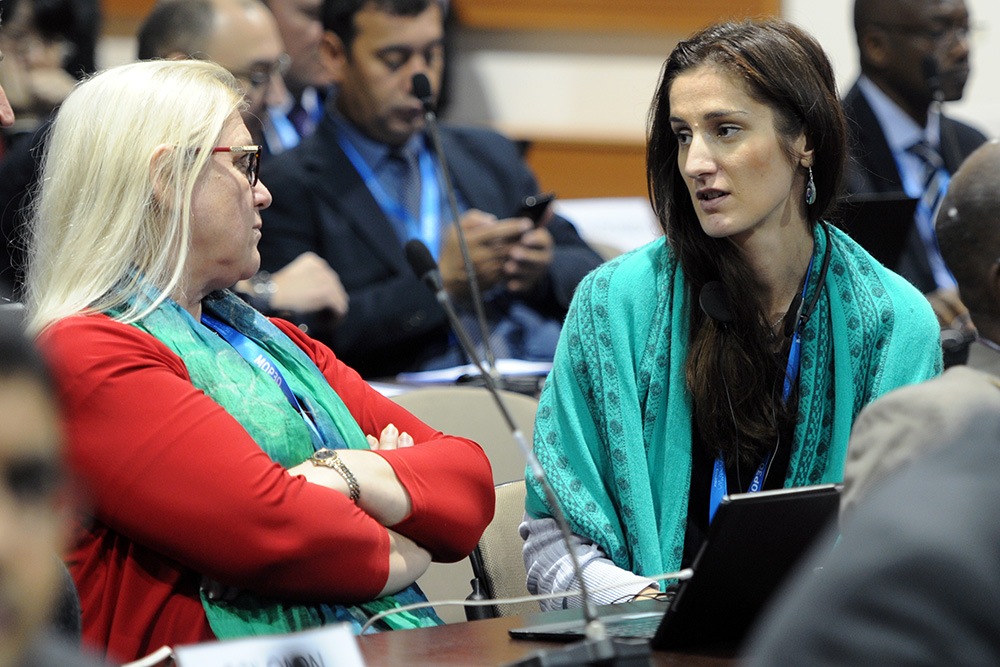
Gabriela Fischerova and Lucia Rosolankova, Slovakia

Delegates from Australia, Canada, and the US, share a laugh during a break

Delegates during Tuesday’s proceedings
The preparatory segment of the Montreal Protocol MOP 30 convened for its second day on Tuesday, 6 November 2018, in Quito, Ecuador.
In the morning, delegates addressed linkages between hydrochlorofluorocarbons (HCFCs) and hydrofluorocarbons (HFCs) in transitioning to low global warming potential (GWP) alternatives, and issues related to energy efficiency while phasing down HFCs.
In the afternoon, delegates discussed:
- Proposed adjustments to the Montreal Protocol on HCFCs for non-Article 5 parties;
- Unexpected emissions of trichlorofluoromethane (CFC-11); and
- Issue raised by the United Arab Emirates regarding eligibility for financial and technical assistance.
For extensive details on the day’s negotiations and to hear what delegates said in the corridors, see our daily ENB.

L-R: Bella Maranion, Fabio Polonara, and Suely Carvalho, Senior Experts of the Technology and Economic Assessment Panel (TEAP); Gilbert Bankobeza, Ozone Secretariat; Tina Birmpili, Executive Secretary, Ozone Secretariat; OEWG Co-Chair Cindy Newberg, US; OEWG Co-Chair Yaqoub Almatouq, Kuwait; Megumi Seki, Deputy Executive Secretary, Ozone Secretariat; Martha Leyva, Ozone Secretariat; and Martha Mulumba, Ozone Secretariat

L-R: Bella Maranion, Fabio Polonara, and Suely Carvalho, TEAP Senior Experts
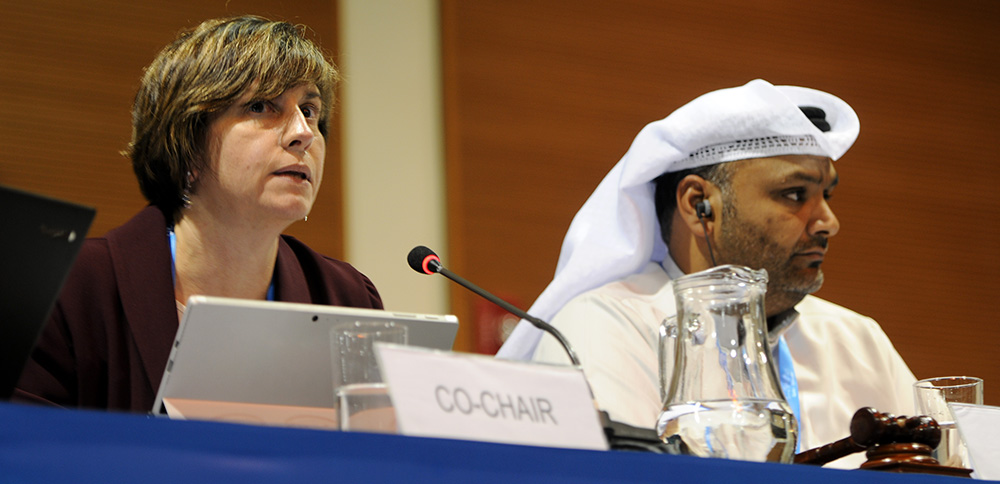
OEWG Co-Chair Cindy Newberg, US, and OEWG Co-Chair Yaqoub Almatouq, Kuwait

Gabriela Lira and Magda Luduvice, Brazil

Ralph Brieskorn, the Netherlands, and Philip Owen, European Union (EU)

The German delegation during informal consultations
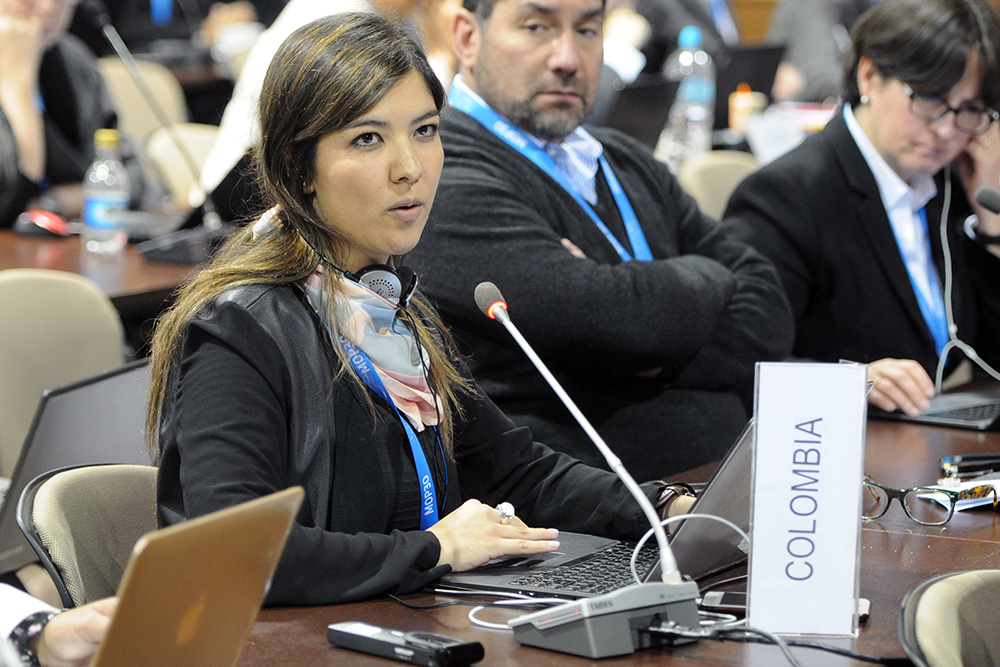
Laura Juliana Arciniegas, Colombia
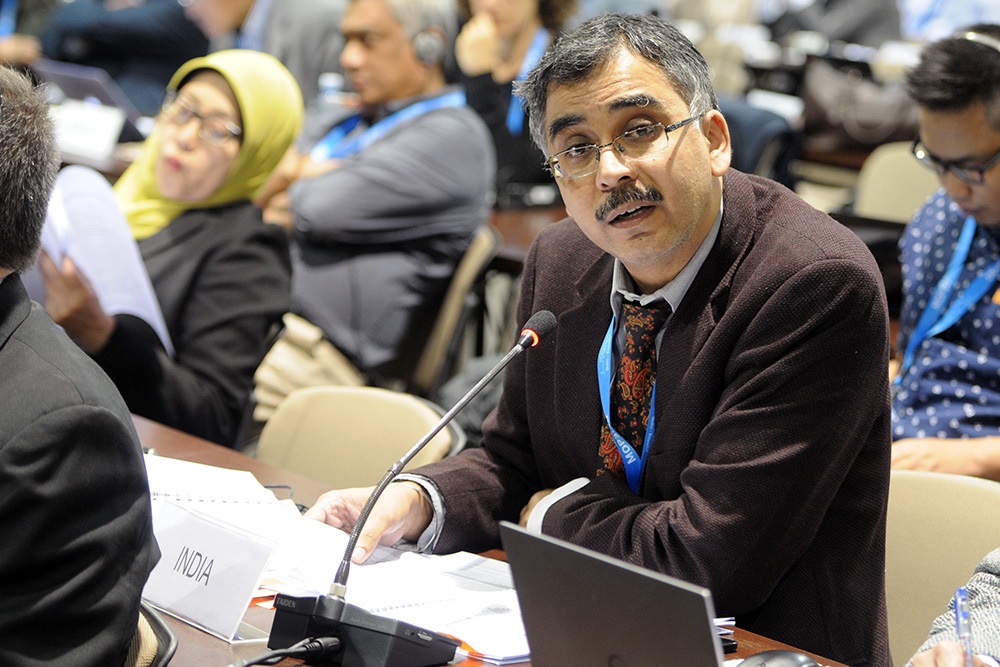
Amit Love, India
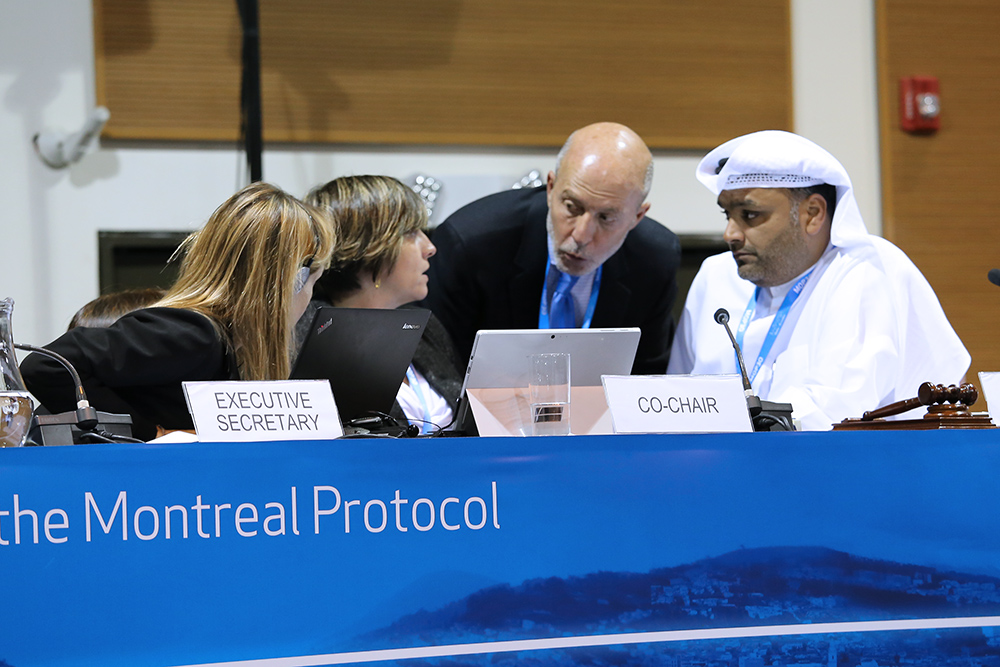
Tina Birmpili, Executive Secretary, Ozone Secretariat; OEWG Co-Chair Cindy Newberg (US); Mazen Hussein, Chair, Multilateral Fund (MLF) Executive Committee (ExCom); and OEWG Co-Chair Yaqoub Almatouq (Kuwait)
The Preparatory Segment of the thirtieth Meeting of the Parties to the Montreal Protocol (MOP 30) opened on Monday, 5 November 2018, in Quito, Ecuador, with addresses from Ecuador's Minister of Industry and Production, Pablo Campana Sáenz, and Tina Birmpili, Executive Secretary, Ozone Secretariat.
In the morning, delegates discussed, inter alia: organizational matters; financial reports and budgets of the trust funds; and matters related to the Kigali Amendment to the Montreal Protocol on hydrofluorocarbons (HFCs), including:
- Data reporting, including revised timeline reporting forms, ways to report mixtures and blends, and setting global warming potential (GWP) values for HCFC-141 and HCFC-142;
- Approved destruction technologies to be used for HFCs; and
- Progress by the Executive Committee (ExCom) of the Multilateral Fund (MLF) in developing guidelines for the financing of the HFC phase-down.
Contact groups were created for data reporting and destruction technologies. A budget committee was also established.
During lunch, two side events were held, on the recent CFC-11 emission increase, and on the private sector’s role in innovating ozone- and climate-friendly refrigeration technologies.
The afternoon session began with reports from delegates regarding their countries' ratification of the Kigali Amendment.
Delegates also discussed:
- Future availability of halons and their alternatives, especially in sectors such as civil aviation and merchant shipping;
- Nominations for critical-use exemptions for methyl bromide for 2019 and 2020;
- Development and availability of laboratory and analytical procedures that can be performed without using substances controlled under the Protocol; and
- Proposals for changes in ODS approved for process agent applications.
In the evening the budget committee and the contact group on data reporting met. Two side events also were held, one on a proposed framework to incentivize energy efficiency while transitioning away from high-GWP HFCs the other on refrigerant management tools for Article 5 countries.
For extensive details on the day’s negotiations and to hear what delegates said in the corridors, see our daily ENB.
IISD Reporting Services, through its ENB Meeting Coverage, provided daily reports and daily web coverage from MOP 30. In addition, IISD Reporting Services will publish a summary and analysis report of the meeting in HTML and PDF.
Photos by IISD/ENB | Ángeles Estrada
+ Visit the web coverage for Monday, 5 November 2018
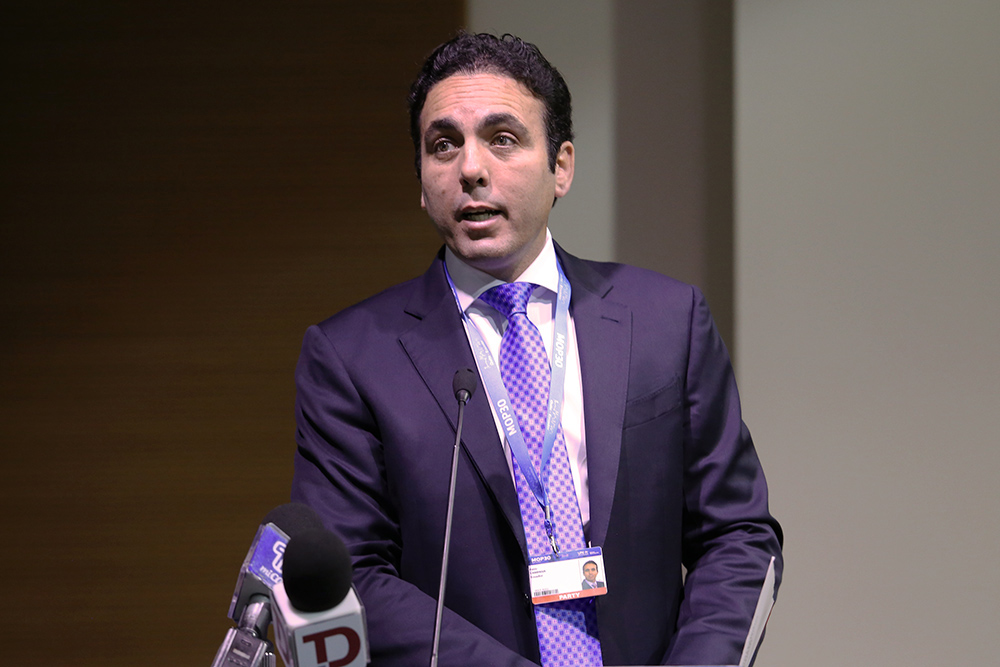
Pablo Campana Sáenz, Minister for Industry and Productivity, Ecuador welcomes delegates.
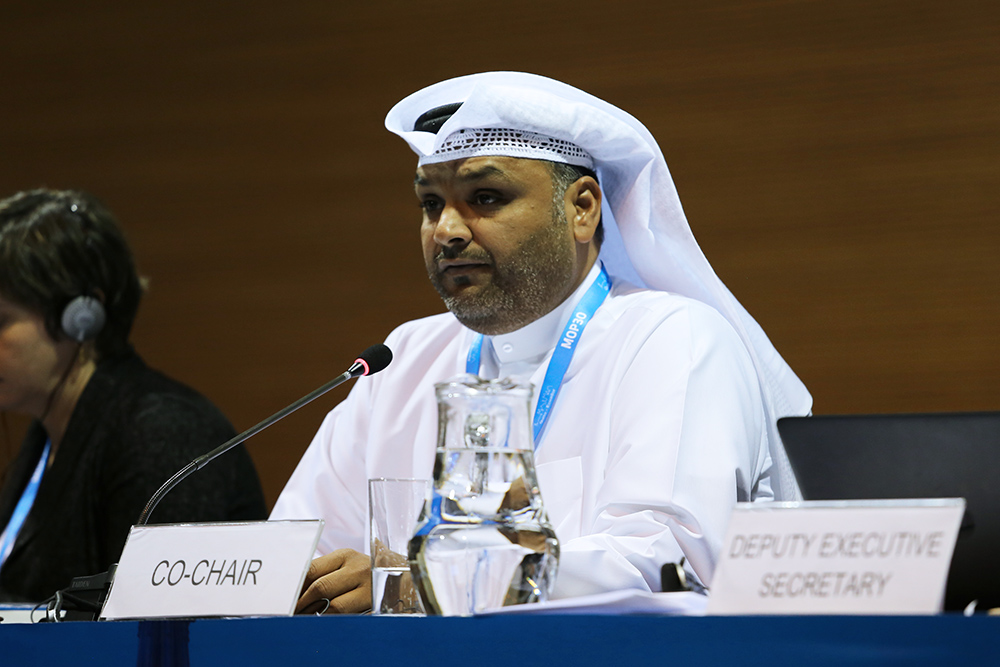
OEWG Co-Chair Yaqoub Almatouq
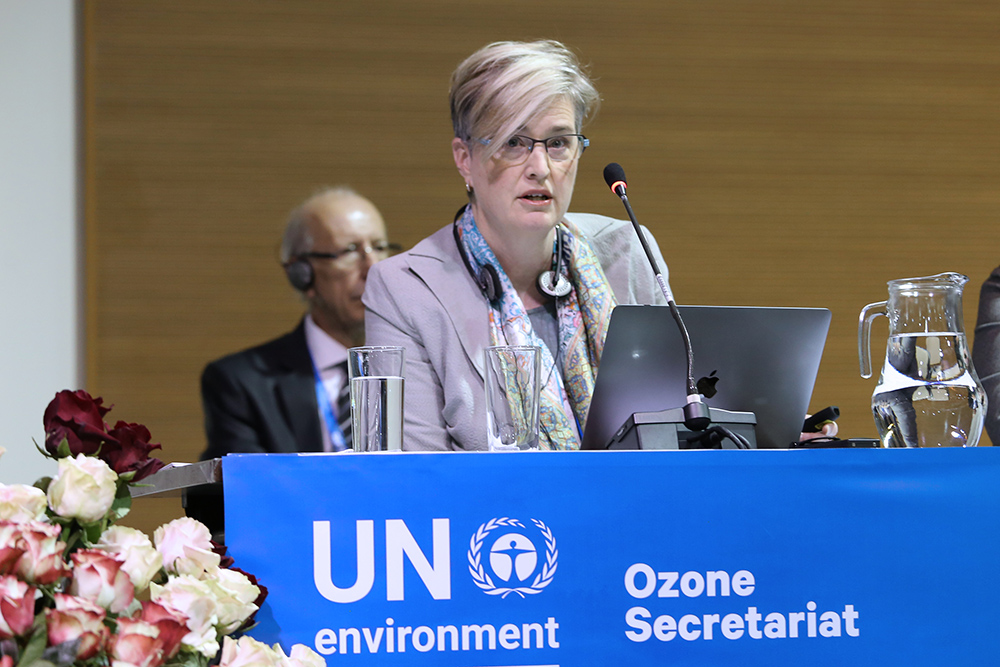
Helen Tope, Co-Chair, Medical and Chemicals Technical Options Committee (MCTOC)
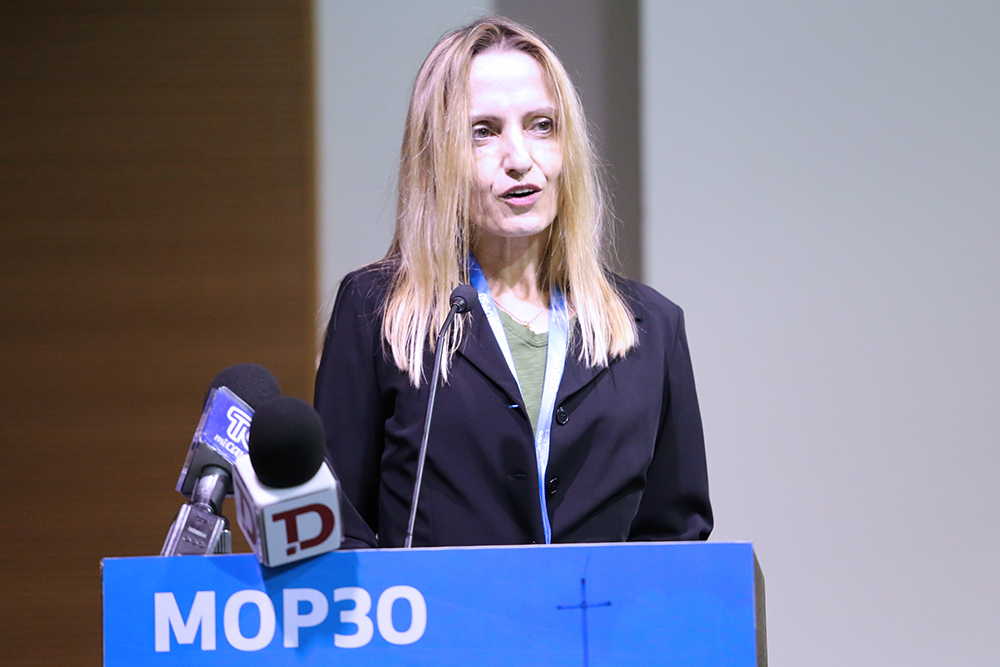
Tina Birmpili, Executive Secretary, Ozone Secretariat
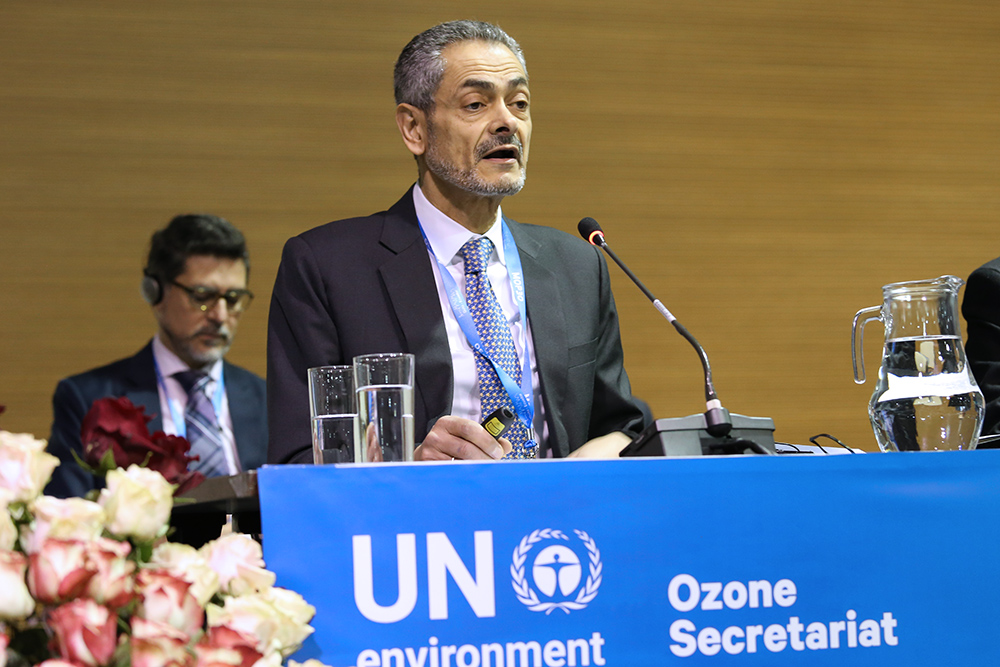
Eduardo Ganem, Chief Officer, Multilateral Fund (MLF)
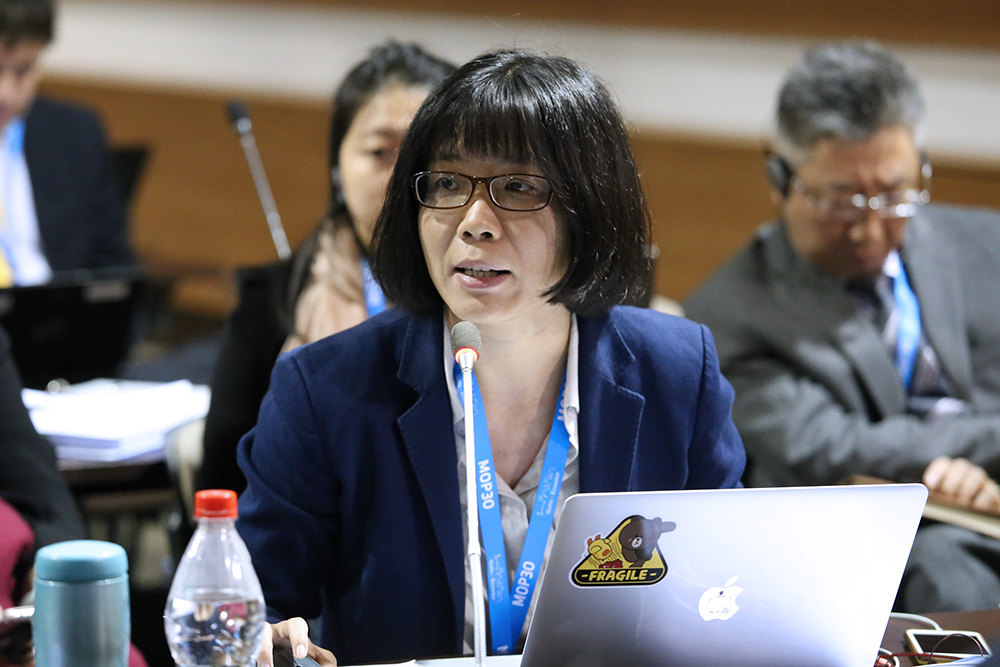
Xiaolin Guo, China
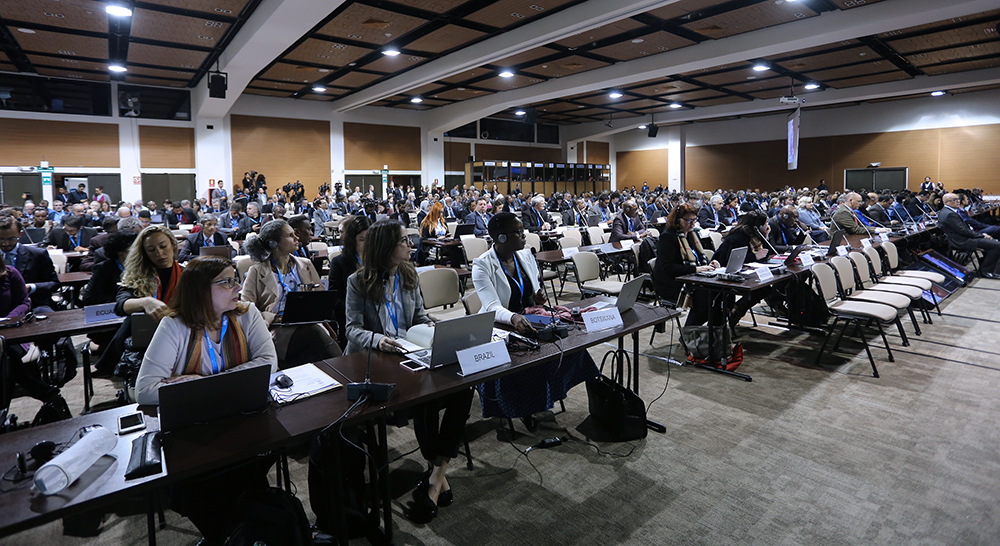
Delegates during plenary
 Specific funding for IISD Reporting Servicescoverage of the 30th Meeting of the Parties to the Montreal Protocol, has been provided by the Ozone Secretariat
Specific funding for IISD Reporting Servicescoverage of the 30th Meeting of the Parties to the Montreal Protocol, has been provided by the Ozone Secretariat













































